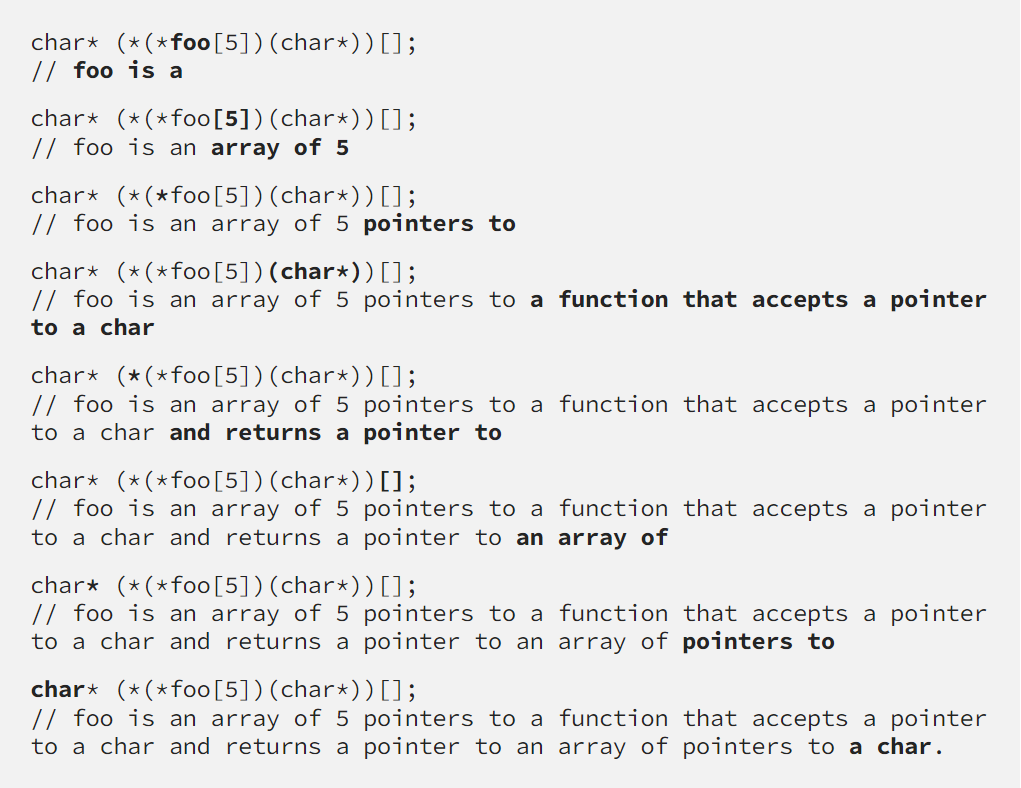Complex Pointers
Rules in order of precedence
()and[]- Evaluated left to right
- Parentheses that are grouping together multiple parts of a declaration have the highest precedence. Next are the postfix operators () and []
*andidName of Pointer or identifier- Evaluated right to left
- Data Type
Code Snippets with numbers indicating precedence
int *p;
3 21
// declare p as pointer to int
int **p;
4 321
// declare p as pointer to pointer to int
int *p[5];
4 32 1
// declare p as array of 5 pointers to int
int (*p)[5];
.2 .1 // paranthesis # 1.1 and 1.2
3 2 1
// declare p as pointer to array of 5 ints
int *p();
4 32 1
// declare p as function returning pointer to int
int (*p)();
.2 .1
3 1 2
// declare p as pointer to function returning int
int (*p)(int *);
.2 .1
3 1 2
// declare p as pointer to function that takes an int pointer returning int
int **p();
5 432 1
// declare p as function returning pointer to pointer to int
int *(*p)();
.2 .1
4 3 1 2
// declare p as pointer to function returning pointer to int
int (**p)();
.3.2.1
4 3 1 2
// declare p as pointer to pointer to function returning int
int (*p)(int, char);
1.2 1.1
2.1 2.2
3 1 2
// declare p as pointer to function
// taking int and char as arguments and returning int
int **p[10];
5 432 1
// declare p as array of 10 pointers to pointer to int
int *(*p)[10];
.2 .1
4 3 1 2
// declare p as pointer to array of 10 pointers to int
int (**p)[10];
.3.2.1
3 1 2
// declare p as pointer to pointer to array of 10 ints
void *(**p[5])(int, char);
.3.2.1
4 3 1 2
// declare p as array of 5 pointers to pointer to function
// taking int and char as arguments and returning void pointer
int (*(*p)[5])();
// declare p as pointer to array of 5 pointers
// to function returning int
.png)
int *(*(*p)(int))[10];
// p is pointer to function having int argumenet
// and returning pointer to array of 10 pointers to int
(int))%5B10%5D.png)
int *(*(*p[5])())();
// declare p as array of 5 pointers to function returning pointer
// to function returning pointer to int
()).png)
float(*(*p())[])();
// declare p as function returning pointer
// to array of pointers to function returning float
)%5B%5D)().png)
int *((*p)[5])();
// invalid declaration

Extreame case:
step by step explanation
